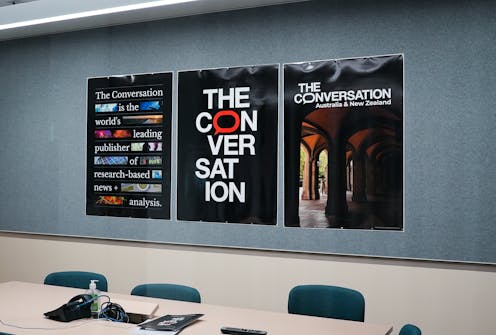What’s the point of journalism? To enable informed decisions
- Written by Misha Ketchell, Editor, The Conversation

What’s the point of journalism? The answer seems obvious enough.
It’s to share information and keep people reliably informed. But if you dig a little deeper there’s a lot more to it. Why do people need to be reliably informed? Because people use the information and knowledge they gain from the media as the basis for important decisions in their lives.
The most obvious one is who to vote for. In Australia, for example, the High Court has long recognised that democracy requires freedom of political communication. Without it, people have no reliable information on which to decide who should lead them.
But if you drill down, the big political decisions are the tip of an iceberg. As Stephan Lewandowsky and John Cook write today[1], disinformation about climate change has delayed policy responses by decades and hurt democracy. This situation is made worse, Celeste Young and Roger Jones explain[2], by the way in which cognitive dissonance about climate change tends to prime us for inaction.
And the damage done by poor information isn’t restricted to climate change. We need good information to navigate a pandemic, or work out how much screen time to allow our children, or what we should eat to stay healthy. Good information helps us understand our fellow citizens and the culture in which we live and it is crucial to social cohesion. But, with so much more media now consumed online, attention-seeking has become an end in itself.
The consequence is that everywhere we see the signs of poor decisions, anger and distrust fuelled by misinformation. This is where The Conversation comes in. We produce quality journalism written by academics so our community can be better informed and people can make better decisions in their lives.
We think the calm presentation of the best evidence and research improves social cohesion and enhances our sense of community. That is the impact we want to have and that we are having. If you’d like to know more about what we do please read our most recent impact report[3] to find out how we are sharing good information to contribute to a better-informed world.
We’ve opened the comments on this article – please let us know what you think about the purpose of journalism, and the current threats to informed decision-making.
References
- ^ As Stephan Lewandowsky and John Cook write today (theconversation.com)
- ^ Celeste Young and Roger Jones explain (theconversation.com)
- ^ our most recent impact report (cdn.theconversation.com)
Read more https://theconversation.com/whats-the-point-of-journalism-to-enable-informed-decisions-218243

















